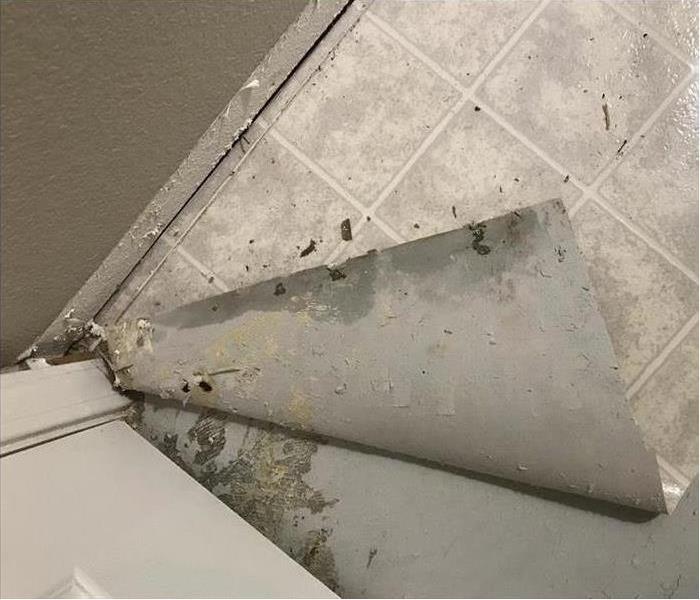Archived Water Damage Blog Posts
The Dangers of Mold in the Home and How to Remove It
6/23/2022 (Permalink)
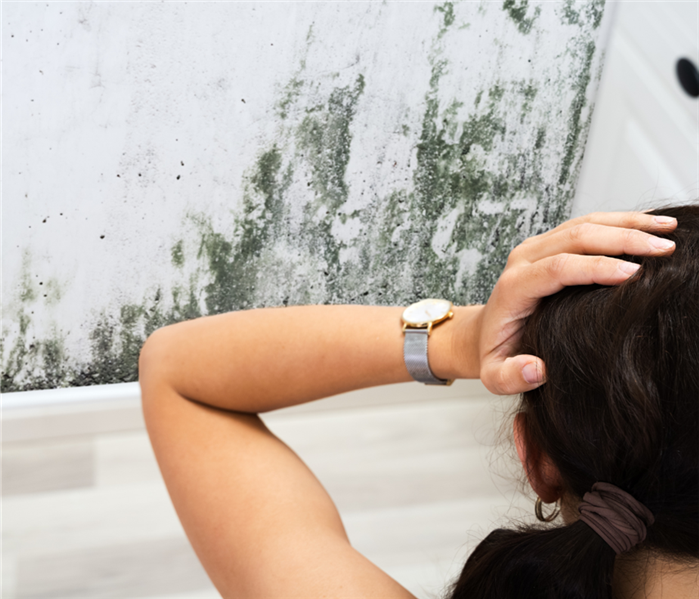 You can contact SERVPRO of Citrus Heights and Roseville / Carmichael. We are here for you for your mold mitigation needs.
You can contact SERVPRO of Citrus Heights and Roseville / Carmichael. We are here for you for your mold mitigation needs.
Mold, also known as mildew, is a fungus that grows in moist and damp areas of the home, such as basements and bathrooms. It’s invisible to the naked eye, but it produces toxic spores and can be dangerous. If you notice mold growing in your home, it’s important to address the problem right away to ensure the safety of your family and protect your property from permanent damage. Here are some tips on how to remove mold in the home.
Why does mold grow?
Molds grow because they need food, water, and air. Molds spread quickly because they can live on almost any organic material. They are able to grow on: wood, paper, cardboard, cellulose materials such as clothing or carpeting, non-cellulose materials like leather or plastic. In order for mold to grow it needs moisture and a source of food.
Signs and symptoms
Mold can be difficult to spot, but if you know what you’re looking for, it shouldn’t be too hard. If your house has any signs of moisture problems—swelling walls or ceilings, cracked paint, water stains on wood or rust-colored mold growing on surfaces—or a musty smell and feel, you might have mold. Read your home carefully, as areas with little light or air circulation are especially prone to mold growth. Common places include basements, crawl spaces, attics and behind shower curtains.
The importance of dealing with it as soon as possible
Mildew, mold, algae - whatever you call it, it’s not something you want lurking around your home. While mold is a natural substance that can be found almost anywhere, some varieties are toxic and even lethal. Inhaling or touching toxic mold can cause allergic reactions worse.
DIY methods of removing mold yourself
One easy, safe way to remove mold is by using cleaners like Bleach. Mix 1 part bleach with 9 parts water and spray on affected areas. This will help kill off mold spores, but you may want to seek professional advice if you have breathing problems or are pregnant. While you can mix up your own solution at home, bleach may cause discoloration of some types of materials or damage surface treatments; it’s better for small jobs that don’t require precise measurements.
When should you call a professional?
Some mold removal jobs are easy enough for homeowners to tackle on their own, but you should call a professional if you suspect that any mold has made your home unlivable or is creating health problems. If you can see or smell mold, it’s time to call a pro. You can contact SERVPRO of Citrus Heights and Roseville / Carmichael. We are here for you for your mold mitigation needs.
Water Restoration: Steps to Take When Your Bathroom Floods
6/23/2022 (Permalink)
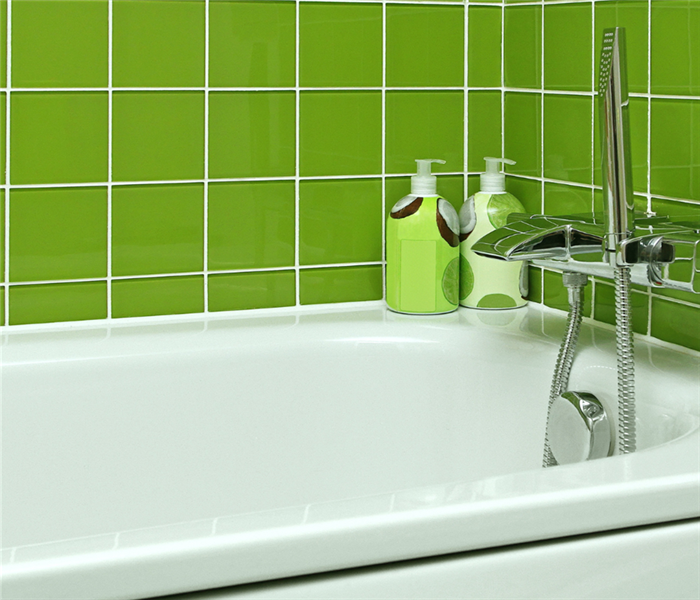 A restoration company, like SERVPRO of Citrus Heights/Roseville and Carmichael can pull out the walls if needed, remove any mold that has accumulated
A restoration company, like SERVPRO of Citrus Heights/Roseville and Carmichael can pull out the walls if needed, remove any mold that has accumulated
It can be devastating to come home and discover that your bathroom has flooded due to a malfunctioning appliance, or because of an issue in the plumbing. While these things happen occasionally, it’s always good to be prepared with the right steps to take when this occurs. In this article, we’ll go over some of the water restoration steps you should take if your bathroom floods, including ones you can take right away and others that should be handled by the professionals.
Before you do anything else, turn off the water
The most common reason for flooding is a clogged drain or toilet. To cut off water flow, first try shutting off any main valves in your home. If that doesn’t work, turn off the main supply valve if you can find it. Otherwise call a plumber as soon as possible.
Once the flooding stops, clean up what you can
While you’re waiting for help, let as much water out of your home as possible. Use towels, rags and other household items to absorb water from carpets, floors and furniture. Be aware that anything with a grain, including wood and fabric, can mold if left wet for too long. As soon as any flooding has been removed from your home or building, work to dry it out completely.
Save any valuable items that may have been damaged
As soon as you realize your bathroom is flooding, remove any items that could be affected by water. This includes toiletries. These can be expensive items if they’re damaged, and there’s no need to risk further damage by leaving them in a flooded room. If it looks like a flood will continue, you may want to consider moving valuable items up higher on cabinets or shelves so they won’t get completely submerged. You may also want to take pictures of your valuables before you move them so that insurance companies have records of what was moved and when it was moved; sometimes photos are necessary for filing claims.
See what caused your plumbing problem
The first step in how to deal with a flooded bathroom is, obviously, identifying what caused your plumbing problem. If it’s due to a burst pipe or leaky faucet, you know you’ll need repairs (and insurance should cover them). But if it’s because you flushed something down your toilet that shouldn’t have been flushed—like a hairbrush or paper towel—you might be able to take care of things on your own.
If there’s been any structural damage, call in a professional contractor
A restoration company, like SERVPRO of Citrus Heights/Roseville and Carmichael can pull out the walls if needed, remove any mold that has accumulated and replace everything so it’s as good as new. If you want to save money on labor costs, you could do some of these tasks yourself (just be sure you know what you’re doing). If there are no structural issues and your bathroom is just wet from a flood or leaky pipes, makes sure you dry it out properly and watch for any mold or mildew.
6 Common Reasons for Water Damage in Homes - Don't Let These Surprises Sneak Up on You!
6/20/2022 (Permalink)
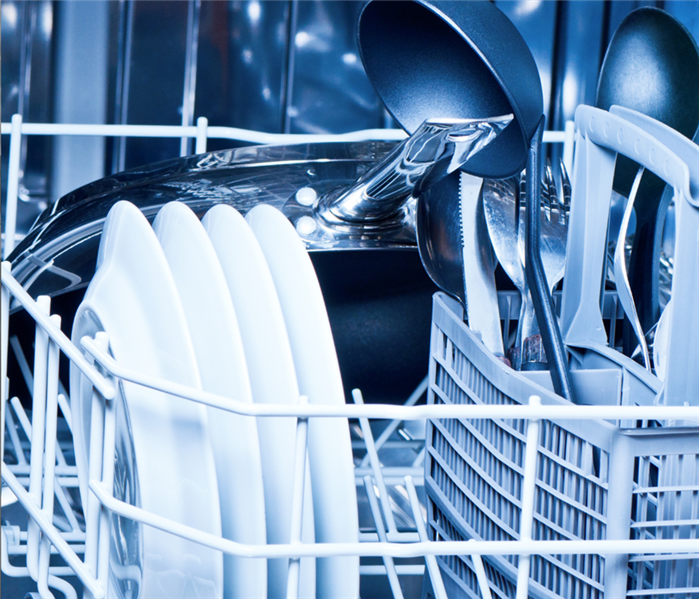 If you’re noticing signs of water damage in your home it might be time to get an updated model or review for issues before a water issue occurs.
If you’re noticing signs of water damage in your home it might be time to get an updated model or review for issues before a water issue occurs.
Water damage can be catastrophic, especially if it occurs in your home. The more you know about the causes of water damage, the better equipped you’ll be to avoid it in the future and to quickly and effectively deal with it should it occur. Here are six common reasons for water damage in homes and some tips to help you avoid them or handle them properly if they do happen to strike your home.
1) Failing to Drain Sink Drains
A common cause of water damage is blocked sink drains. If you have a double-sink and both are working, but there’s a bit of water sitting at one of your sinks then it’s possible that you have a blockage. Check with your local hardware store for drain cleaners, which can remove debris from drains and get them flowing freely again. A good idea is to also buy drain rods which can unblock stubborn problems if all else fails.
2) Clogged Drains
Drains have a tendency to get clogged up with hair and dirt, which can lead to water backup and damage. It’s important to regularly clean out your drains and make sure there isn’t anything lurking inside. Even when you do clean them, make sure they are not clogged. When you discover a clog, take care of it right away.
3) Bathtub Faucets that Leak
When it comes to small bathroom sink or tub faucets, they can be a problem area. If you live in an older home, it’s likely that your bathtub faucet is over 20 years old. While that’s not uncommon, these fixtures have a limited life span of about 20 years. What may start as a small drip can turn into a large leak quickly, resulting in thousands of dollars worth of damage—or worse.
4) Obstructions Causing Foundation Leaks
As time goes by, you may find your foundation drains starting to experience leaks. This could be caused by objects that have fallen into them and are blocking your drain lines. Take a close look at your foundation drain lines, and take note of any items that could have found their way down there. Be sure to remove any obstructions quickly before they can cause expensive water damage to your home’s structure.
5) Leaky Roofs
A leaking roof can cause a lot of damage over time. The wood around a leak will rot, and lead paint can be ruined by water. If you spot water stains that appear to be making their way from your ceiling to your floor, it might be time to call a professional. They’ll check for leaks and fix them as soon as possible.
6) Outdated Appliances
A home appliance is any machine or device that’s meant to do a job around your house. So, not just washers and dryers but also dishwashers, air conditioners, dehumidifiers, ventilators, etc. If you’re noticing signs of water damage in your home – mildew-like mold growing around an old dishwasher for example – it might be time to get an updated model or review for issues before a water issue occurs.
How to Prevent the High Cost of a Small Water Leak
5/26/2022 (Permalink)
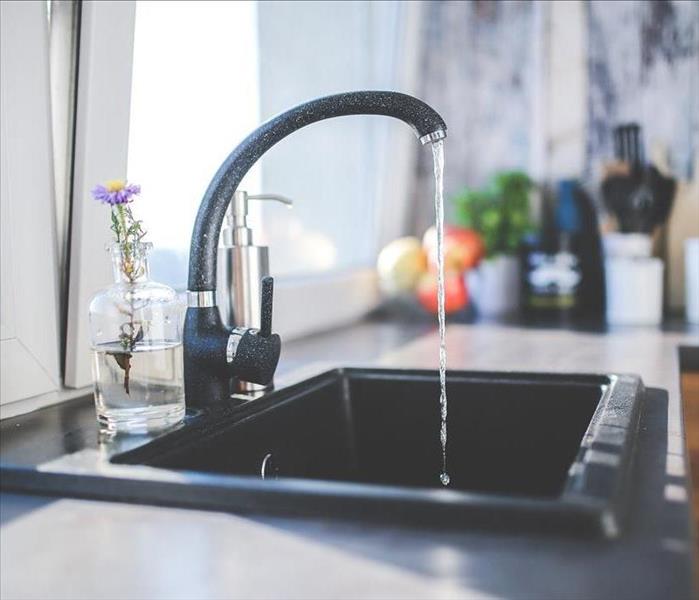 A small water leak can lead to big problems if it’s not addressed immediately.
A small water leak can lead to big problems if it’s not addressed immediately.
A small water leak can lead to big problems if it’s not addressed immediately. These leaks can add up over time, meaning you’ll pay more in the long run than you would if you were to address the issue as soon as it occurs.
What is a small water leak?
While it might not seem like much at first, water damage can quickly escalate into significant issues if left untreated. Consider, for example, what happens when one of your home’s windows sustains a small crack—or let’s say you have a leaky faucet. You might notice some water damage on an adjacent wall or flooring in your bathroom or kitchen. But consider how many hours, days, and weeks that small leak occurred before you found it.
When do I need to call my plumber?
A small water leak can add about $40-$50 to your monthly utility bill. To make sure that you know when it’s time to call your plumber, read these three signs that you have a leak in your pipes: (1) one room in your house is consistently much colder than others; (2) water pressure has changed; and (3) there are wet spots on your ceilings or floors.
Not all leaks are easy to detect
Sometimes, you have no idea you have even lost water! But if your home or office has suffered from an undetected leak, you could be paying up to 10 times more on your water bill than you should. This is because leaks take time to register—and by then, it’s too late.
Once you’ve addressed your small leaks, take preventive measures
Tighten your faucets, replace any worn washers in faucets and showerheads, and turn off all taps when you’re not using them. Consider installing water-saving showerheads or aerators on faucets. Running full loads only when they’re filled up will also help reduce your water use.
SERVPRO of Citrus Heights/Carmichael and Roseville for Water Damage
Flooding and water damage can happen instantly, and if it does, you need quick action. SERVPRO is ready 24/7 for an immediate response! Learn how SERVPRO of Citrus Heights/Carmichael and Roseville goes above and beyond to ensure that our customers have everything they need to get their lives back as quickly as possible when disaster strikes.
What to Do When a Water Loss Occurs
6/1/2021 (Permalink)
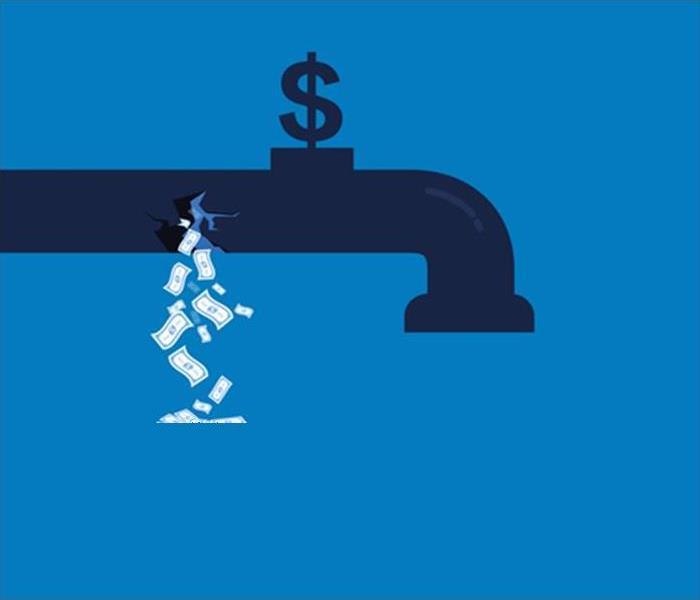 Water damage may occur by a burst pipe, water tank flooding, water main flooding due to storm damage, or wear and tear of the equipment.
Water damage may occur by a burst pipe, water tank flooding, water main flooding due to storm damage, or wear and tear of the equipment.
What to Do When a Water Loss Occurs
Water outages. Water interruption. Water loss. There are a lot of contributing factors as to why we experience these unfortunate situations. It can happen due to street work in the area. It may also be because of a burst pipe, water tank flooding, water main flooding due to storm damage, or wear and tear of the equipment or of a structure over time. Surprisingly, natural calamities such as droughts and floods can also be a factor in water loss. Depending on the gravity of the situation, water loss for several hours or even days is unbearable and may pose a safety hazard.
We can’t live without water. That’s for sure. Therefore, it’s necessary to be prepared and armed with enough knowledge. Know what to do and how to handle this very trying situation. Below are some important steps to take when you are faced with water loss.
1. Protect Yourself, Possession, and Properties.
a. Water damage can harm your safety and health. It can also seriously damage possessions at home. Be sure not to drink water from any type of flooding because it can be contaminated and have lasting negative effects.
b. It is also important to shut off any electricity by switching off circuit breakers and unplugging devices. Only turn off electricity at home if it is safe to do so.
c. When re-entering the home ensure you are wearing protective gear such as rubber boots. If safe to do so, grab the most valuable items such as electronics, jewelry, and documents.
2. Repair faults and stop the water damage.
You must find the source of leaks or where water is coming from. Once found, it’s imperative to shut off the water’s main source. More often than not, the common cause of water damage is a broken pipe or a hot water tank leak. You should be familiar with your home’s layout and know where the main valves are. When an emergency like this happens, you can immediately and hastily attend to the situation. As for natural causes, like flooding, search for ways to be prepared especially if you live in a flood-prone area.
Through all the possibilities of a water loss, the prime damage can be mold or mildew. Keep aware and look for signs of moisture along baseboards, look for discolored buildings, and seek to be aware of foul odors.
With storm season in Citrus Heights, Roseville and Carmichael expect harsh rains and destructive winds. It’s important to stay on top of these situations and have your property checked before the rainy season comes. Have an expert check for any damages and leaks and allow a professional to fix them. Here at SERVPRO of Citrus Heights, Roseville, and Carmichael, our trained and competent technicians will be happy to serve you 24//7. Entrust your safety with us.
Common Reasons for Water Damage in Homes
6/1/2021 (Permalink)
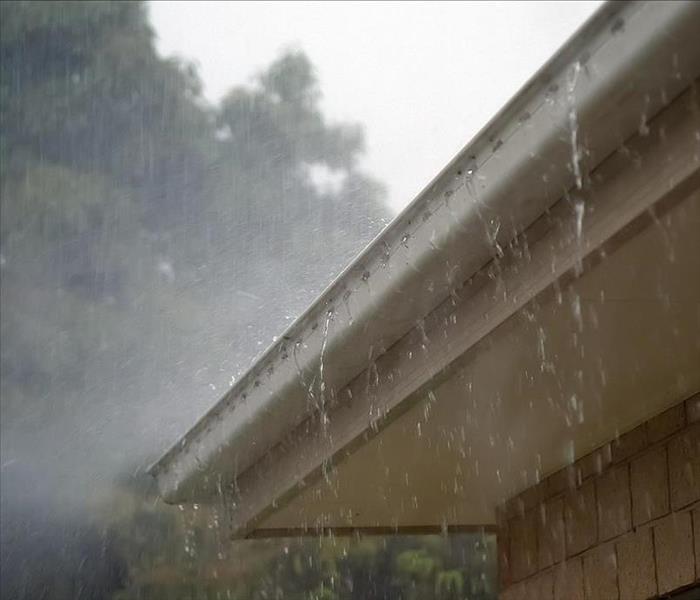 Debris, leaves, and other substances are the culprits that block your gutter and stop the flow of water.
Debris, leaves, and other substances are the culprits that block your gutter and stop the flow of water.
Water is one of the most important substances on earth. Needless to say, to live is impossible if we don’t have this life-giving compound. But with all the importance and benefits we may get from water, it is also important to note that water can damage our properties and may create harmful effects. It can also affect our health if we don’t take the necessary steps to reverse its impact.
Many factors can bring damage to our homes. But among the list, water damage seemed to be taking the number one spot. And it can be damaging on so many levels. It can cause structural hazards and faults, to say the least. When water slowly creeps into our properties, mold starts to form and it can rot wood and other materials which can weaken the foundation of every building. Mold is also a serious health hazard as it reduces the air quality inside our homes.
We’ve enumerated some common causes of water damage. Let’s get to them one by one.
1. Severe Weather conditions.
Hurricanes. Mudslides. Excessive rain. These natural disasters will constantly cause water damage whenever they happen. Besides, the heavy wind and downpours could open your roof or damage it. Consequently, it may allow water to penetrate your home or business space. And if your home is situated in a low-lying area or flood-prone area, you will experience flooding whenever the rain falls.
2. Clogged gutters.
Your gutter system is supposed to drain water away from your house. But if your home doesn’t have gutters that aren’t properly installed and cleaned regularly, water leaks into the home. When that happens, water won’t be able to properly flow away from your property. It will find a way to escape and a different path to follow such as the edges of your gutters and sides of your house, and even through your ceilings and walls which will eventually cause damages in every part of your home. Debris, leaves, and other substances are the culprits that block your gutter and stop the flow of water.
3. Leaking pipes.
A broken or even loose-fitting pipe inside the wall or under the sink of your home can cause issues and put your building in a dangerous situation. It is very complicated to stop water damage from a leaking pipe. When mold starts to form in one area, it can creep to other areas creating a colony of mold. And such a situation can cause us a huge amount of money being spent on repairs especially if the leaking pipes are located or installed underneath the ground or a concrete slab.
4. Blocked Drains.
Blocked drains can adversely affect the structure of our homes and buildings. The blockage in drains from floors and sinks caused by the accumulation of various debris, different objects, food, and grease can be enough causes that contribute to water damage. The build-up of these materials obstructs water from flowing freely making water damage inevitable.
How to prevent water damage?
The best way to avoid water damage in your home is to prevent blockage that can stop flowing water. You can do that by regularly checking the areas mentioned here. Clean and maintain your gutters, fix leaking pipes, attend to downspouts. Make sure that your pipes, drains, and gutters are free from dirt. Checking your equipment regularly and ensuring they are in perfect condition also helps.
Above all these, a professional home inspection will also make a big difference. If you need further accurate recommendations from an expert point of view, contact SERVPRO of Citrus Heights, Roseville, and Carmichael. We are here to help you prevent your home from water damage and any other home or business disasters. We will save you from unnecessary troubles and costly repairs.
How to Protect your Home from Floods
6/1/2021 (Permalink)
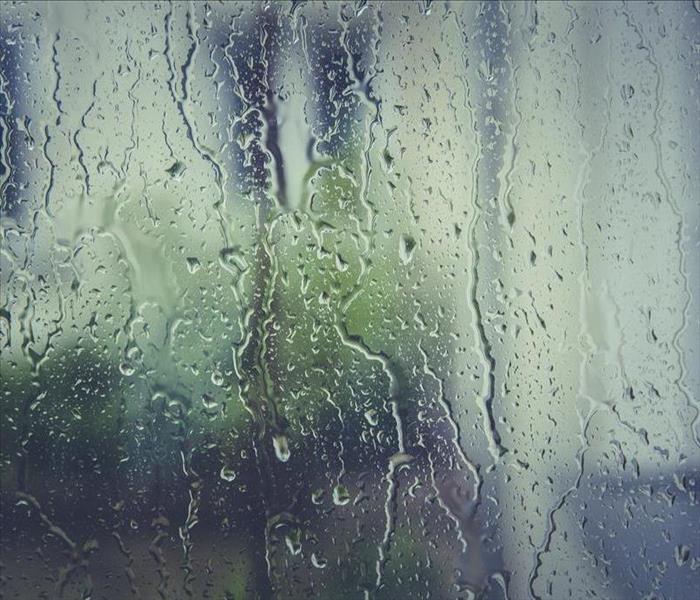 Excessive rains can result in flooding. Be prepared.
Excessive rains can result in flooding. Be prepared.
Prevention is better than cure. This adage is famous in the field of healthcare and medicine. But keeping this saying in mind and applying it in whatever situation we are in would save us a lot of trouble and extra work. And this also applies when it comes to disasters such as excessive rains that result in flooding - which can happen even in the most advanced countries like the US. When nature strikes, floods happen. And sadly, floods and storm water can wreck our properties, such as homes and businesses. And aside from the physical damage to our properties, floods can negatively affect our well-being too.
Floods are unpredictable and destructive. And If we are not prepared for the possibility and impact of a flood, times can be stressful, emotionally exhausting, energy-draining, and financially burdensome.
Having said all these, the best thing we can do is to decrease the impact, increase our capacity to endure, and recover stronger from these disastrous events. In these instances, flood preparedness is crucial, especially during the rainy season. And as a professional restoration service company, let us share some pro tips to be prepared and lessen the impact of this damaging natural occurrence.
1. Know your location well. Be sure to have flood details of your area. Spending a few hours understanding your location would save you a lot of trouble. It will give you an insight and let you prepare for the worst-case scenario. You can also consider having your house inspected by professionals to know how your home can withstand floods.
2. Regularly have your house checked and inspected. Look for gaps and cracks. Seal walls in basements with waterproofing compounds to avoid leakage. Fix any of these openings by yourself or you can call a professional to do the task.
3. Get battery-powered sump pumps. Sumps pumps enable you to remove excess water from your home when floods come. Aside from getting battery-powered sump pumps, you may want to also consider waterproofing your basement. It may be a bit expensive but it is worth your money when that catastrophic event happens.
4. Install septic or sewer link check valves that allow waste to flow one way. That will prevent sewage from coming back into the stagnant water in your home.
5. Ensure that you keep your expensive and valuable properties in a safe location. That may include furniture, artworks, certificates, and more. At the onset of a flood, be sure to place important personal documents, valuables, and vital medical supplies into a waterproof case in an accessible location.
6. Flood Insurance Program. Every property and belongings are vulnerable especially during a flood. That’s why it’s important to protect them. Ensure you get an insurance policy that covers cleanup and flood damage repair.
It is always crucial to have a plan to protect your family, property, and belongings in case bad weather strikes. A comprehensive plan coupled with the help of professionals will save you money, time, unnecessary work, and a roller coaster of emotions. And you will get the best preparative measure if you hire a professional restoration service company. SERVPRO of Citrus Heights/Roseville and Carmichael is vastly experienced and specially trained to step into terrible and dreadful situations and restore your home. With the assistance of our highly trained team composed of competent technicians, advanced equipment, and round-the-clock service, your home is in safe hands.
How to Remove Mold in the Home
5/5/2021 (Permalink)
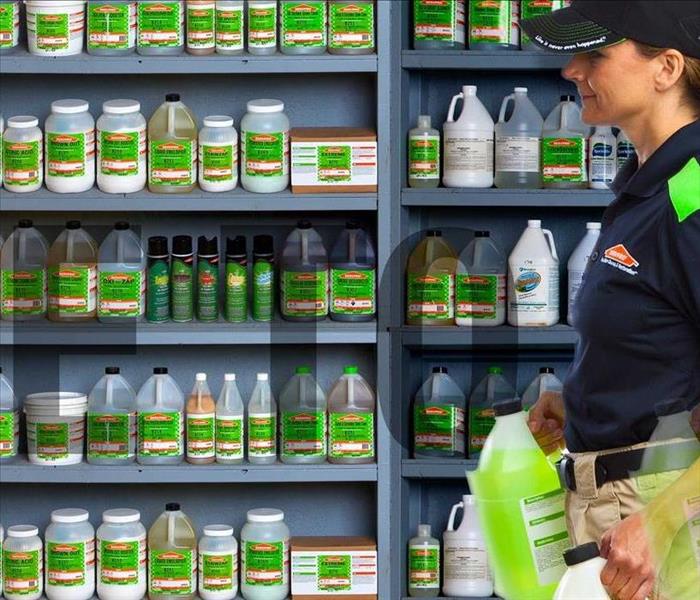 It is best to hire a professional mold mitigation and restoration company to give the best results in riding your home from mold..
It is best to hire a professional mold mitigation and restoration company to give the best results in riding your home from mold..
It may sound strange that mold can grow in your house. You might not even know. Surprising, isn’t it? Indeed, mold loves to grow in warm, dark, and humid places that are hidden. To make it worse, getting rid of mold can be challenging once it begins to spread.
Mold is inevitable in humid areas. It grows around water leaks, wood, window pipes, ceiling tiles, roofs, paper, and cardboard. You can also find it growing on wallpaper, paints, drywall, insulation, carpet, fabric, and upholstery. It’s not hard to find mold wherever there is moisture. It is their natural environment.
When the conditions are suitable, mold will multiply. Sometimes, mold can grow substantially within 24 to 48 hours. Considering the effects mold can cause, it is essential to stop the mold before spreading.
How do you stop mold from spreading in your home?
- Once you detect mold in your house, the first step is to find the source. After discovering the place where they begin to grow, contact SERVPRO of Citrus Heights, Carmichael and Roseville via (916) 966-2601. We offer 24 hours mold mitigation and restoration services. Our team of experts is always ready to swing into action to complete inspection and mold damage assessment.
- Our professional cleaners will contain the mold using air filtration to stop mold growth in the affected areas.
- After that, the following line of action is to remove mold and mold-infested materials.
- Our team will clean the contents and belongings in the house. That will bring your home back to its initial nice-looking condition.
- The last step is to restore and repair every affected area.
Harmful measures are unknowingly employed when trying to self- combat mold in homes. It is, however, worthy to note that most products used contain harsh chemicals that may pose further threats more than the mold itself. Hence, it is best to hire a professional mold mitigation and restoration company to give the best results.
Avoiding Water Damage While Vacationing
6/8/2020 (Permalink)
 When planning a getaway ensure all things are in order before travel to avoid water damages while vacationing.
When planning a getaway ensure all things are in order before travel to avoid water damages while vacationing.
Planning a getaway is an excellent idea, especially after all the stress of work, idleness, being indoors for too long, and more. It is best if you spin your web elsewhere sometimes to refresh your body, mind, and soul. It is always good to keep your house in order before going on a vacation to keep your mind at ease and to prevent property damage while you are away.
You could be at risk of water damage if you fail to check the little things that matter before leaving the house. Check for dripping water, leaky pipes, and ensure to turn off water sources.
Tips to help you prevent water damage while you are out vacationing:
Turn off Water Sources
Turning off water sources could save you from headaches when you return. If the water mains is not turned off, pressure could build up in pipes, which may lead to leaks or pipe burst, causing your house to become flooded.
Check Your Appliances
Before leaving the house, check your washing machine, dryers, dishwasher, and refrigerators for leakages and fixes. Consider replacing damaged supply or drain lines as well.
Clean Your Rain Gutters
People sometimes don't remember to check their gutters for debris and blockage. Have your gutter cleaned and debris removed before vacationing to prevent water blockage.
Have Someone Checking in On Your Home
Consider having someone check up on your home regularly if you plan to away for several days or weeks. Having someone check on your home could help detect any water leak issues. At the same time, you are gone and prevent and damages from escalating if detected and fixed early.
Check Your Home For leaks
Pay attention to pipes under your kitchen and hand washing sinks. Rust, cracks, pipe damage, or drains repair should be completed as soon as possible. Check your windows and doors for any loss and fix to prevent rain from entering while away.
Get the service of a professional to ensure all repairs are carried out successfully to guarantee the safety of your property while you are away.
How to Prevent the High Cost of a Small Water Leak
5/14/2020 (Permalink)
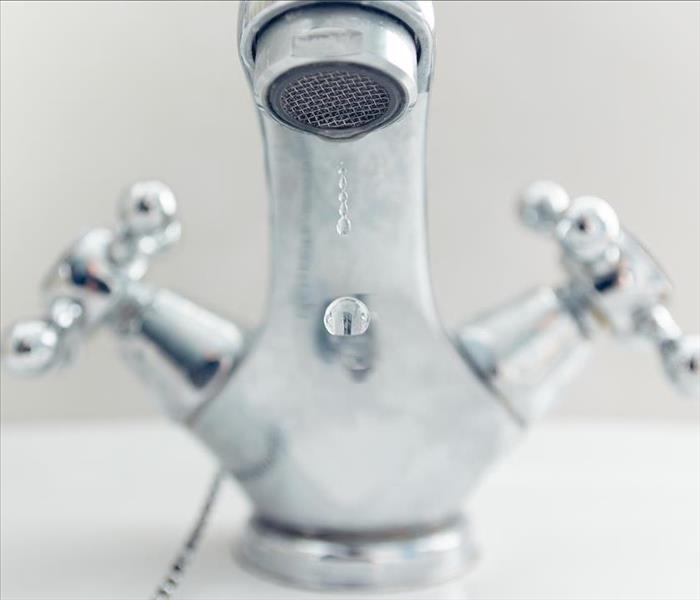 You can learn ways to detect water leaks and drips. You can also learn how to stop these water damage occurrences before it causes severe damage.
You can learn ways to detect water leaks and drips. You can also learn how to stop these water damage occurrences before it causes severe damage.
Are you suffering from a water leak because of a damaged pipe and are scared of the high cost of repair or a water bill? Fortunately, you can learn ways to detect water leaks and drips. You can also learn how to stop these water damage occurrences before it causes severe damage leading to high costs.
Fixing minor leaks: Undetected leaks can come from plumbing pipes or appliances like washing machines, refrigerators, and dishwashers. An average home suffers 17 gallons of water loss daily. This leads to higher water bills. People don't know the implications of ignoring a dripping shower head or kitchen faucet. You may lose up to 347 gallons of water in a year from dripping shower or kitchen faucet alone thereby suffering a high cost of a water bill. Water leaks can ruin your wall paint, drywall, ceilings, floors, cabinetry, and even impact HVAC ducts and electrical wiring.
Getting rid of mold: Floods, if not properly cleaned can give rise to mold thereby ruining the surface and are a potential health hazard. Moreover, undetected leaks are also likely to create humid conditions that allow mold to thrive. You may decide to get rid of mold in a small area, however, it is advisable to hire a professional like that of SERVPRO of Citrus Heights/Roseville and Carmichael for a more serious mold problem.
Get a leak detector: While you may hear a hissing toilet or see a faucet drip, many problematic leaks are difficult to detect — there may be leaks under a sink or behind a washing machine. With the help of smart technology that detects and alerts you of leaks in your home, you could save yourself from damages and can save money. There are different varieties of leak detectors for every budget in the market you can choose from.
Leakage detection technology is a smart way to avoid common plumbing problems and keep your home watertight. More so, it is best to fix a leak no matter how small, the moment they are spotted to avoid further damage and avoidable expenses.
10 Things That Are Ruining Your Home's Plumbing
5/6/2020 (Permalink)
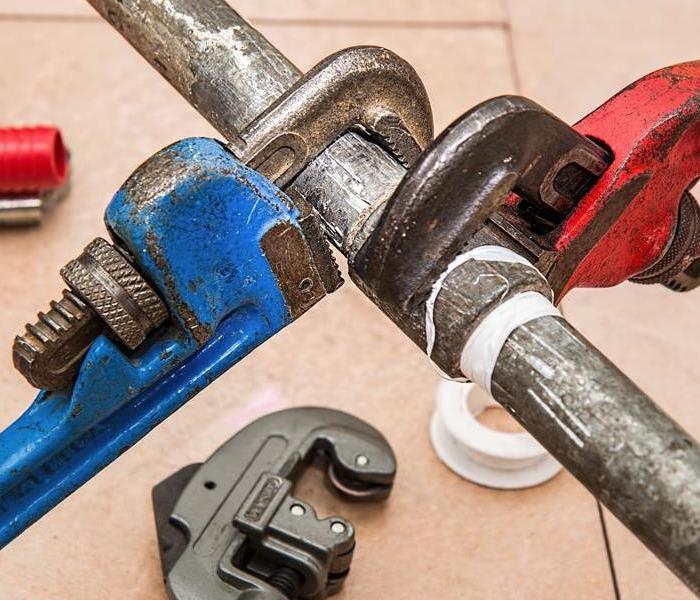 Getting a professional plumber can be expensive, it doesn't mean you should take on a big plumbing job yourself.
Getting a professional plumber can be expensive, it doesn't mean you should take on a big plumbing job yourself.
Plumbing is something we should be careful about. Some plumbing problems are our faults while others are natural. You may likely be the biggest threat to your plumbing — whether by putting the wrong things down the garbage disposal or doing a bad DIY job. Do you want to avoid ruining your plumbing, then stick to these 10 things?
10 Things That Are Ruining Your Home's Plumbing
- Stop Flushing Foreign Objects Down the Toilet
The most important to do to protect your plumbing is to avoid flushing foreign objects like paper towels, baby wipes, and anything else that’s not toilet paper.
- Leave Big Plumbing Work For A Plumber
Getting a professional plumber can be expensive, it doesn't mean you should take on a big plumbing job yourself. You may make a mistake that can damage the whole plumbing structure thereby making you spend more to fix or not getting a favorable result.
- Stop Pouring Grease Down the Drain
After cooking do not put grease down the drain. The fat from the grease will cause a huge clog and build up over time.
- Stop Using Drop-in Toilet Fresheners
Drop-in toilet fresheners have chlorine, after it dissolves it can cause corrosion to the gaskets and washers. It is best to stick to scrubbing with a good old-fashioned toilet bowl cleaner.
- Replace The Hoses on Washing Machines and Dishwashers
If it's been a while you changed the hose of your washing machine or dishwasher, it would be best you do so now. Washing machine or dishwasher hoses last about five years. A hose may show no sign of wear and tear until the day it suddenly burst.
- Avoid Putting Potato Skins Down the Garbage Disposal
Avoid clogging your pipes by disposing of potato peels in the garbage.
- Take Freezing Pipe Precautions
Insulate pipes from freezing temperatures, especially if you live in a place where the temperature falls below freezing temperatures. This is essential to avoid water from freezing in pipes which may lead to expansion and burst.
- Avoid Leaving Hoses Connected in the Winter
Outdoor hoses should be disconnected and removed in winter to prevent it from cracks which may, in turn, lead to leakages in the future. An insulation cap on the bare spigot could also be used to provide added protection for the hose.
- Replacing Your Water Heater
Basically, a water heater has a lifespan of 8-12 years, while the tank less models may last up to 20 years. Replacing water heating should not only be done when the heater has used its average lifespan but also when it is under-performing such as a drop in water temperature or knocking sounds.
When You Have Water Damage
4/29/2020 (Permalink)
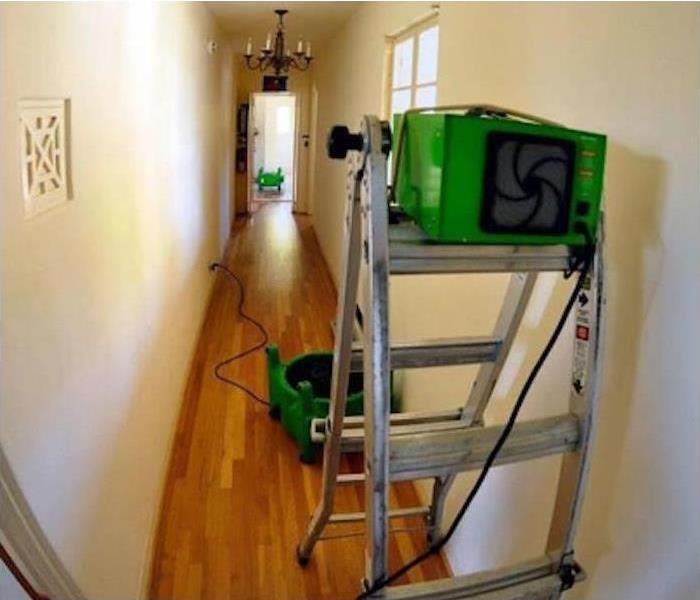 For your water damage repairs, contact SERVPRO of Citrus Heights/Roseville and Carmichael today for a professional and fast job.
For your water damage repairs, contact SERVPRO of Citrus Heights/Roseville and Carmichael today for a professional and fast job.
Water damage, especially if caused by flooding can have a devastating effect on houses and businesses. Floods are caused by heavy rains, pipe burst, sewer back-up, and others. When faced with such events, it is important to know what to do.
Follow these steps if you suffer from a water event at work or in the home:
Switch off the power source: Water is a good conductor of electricity. When water and electricity come in contact, the water becomes dangerous. The first thing to do when water is gaining momentum is to switch off the power source. However, if switching off the power source requires someone to enter the house and stand in flooded areas, contact a qualified electrician.
Put on protective clothing: To avoid getting cuts, put on rubber boots and a pair of gloves before going back inside.
Protect valuable items: Lift any wooden furniture off flooded areas. Place furniture on a wooden surface or dry carpet to avoid staining. Take out all rugs from wet areas and sundry.
Dry out the home: You can power on fans and humidifiers to dry out wet areas in the house. It is important you let the house dry completely to avoid mold and mildew as a result of dampness if you move back in too quickly. You will need to contact a professional restorer, like SERVPRO of Citrus Heights/Roseville and Carmichael, to restore your house back in perfect condition.
Wash your eating utensils thoroughly: Wash all eating utensils thoroughly before use to avoid falling sick.
Contact your insurance provider: Your insurance company should have to look at the level of damage and draw out a plan for repair or pay you for repair depending on their policies.
Repairs: The floor may be weakened by the flood event and you may have to replace it. Repair the walls and fix broken items that can be fixed. These are tasks to be handled by professionals.
For your water damage repairs, contact SERVPRO of Citrus Heights/Roseville and Carmichael today for a professional and fast job.
7-step Water Damage Process
4/27/2020 (Permalink)
 7-step Water Damage Process
7-step Water Damage Process
Are you a victim of water damage and you require a restoration company to help raise you back on your feet? Below are the reasons why SERVPRO of Citrus Heights/Roseville and Carmichael is your most reliable restoration company to contact.
7-step Water Damage Process
- You will be contacted by one of our staff members to arrange for service within one hour of notifying us of your loss.
- A SERVPRO of Citrus Heights/Roseville and Carmichael professional will be on-site to start mitigation services within four hours of loss notification. We believe that timely response is the key to minimizing loss and saving money.
- After evaluation of the damage by a trained, uniformed, and equipped staff member, you will be briefed on the job process, providing you with a detailed explanation of what to expect and the anticipated outcome.
- A team of SERVPRO of Citrus Heights/Roseville and Carmichael professionals will begin pretesting for restoration from the source of the damage outward.
- Your property manager or adjuster will be briefed verbally on the scope of operation.
- Our team will work efficiently to help you regain control of your property.
- You will be walked-through after completion of the job to ensure your satisfaction.
If your home or business is damaged by water, you can rely on SERVPRO of Citrus Heights/Roseville and Carmichael's effective 7-step water damage process.
Prioritizing Safety in the Aftermath of a Flood | SERVPRO® of Citrus Heights/Roseville
4/13/2020 (Permalink)
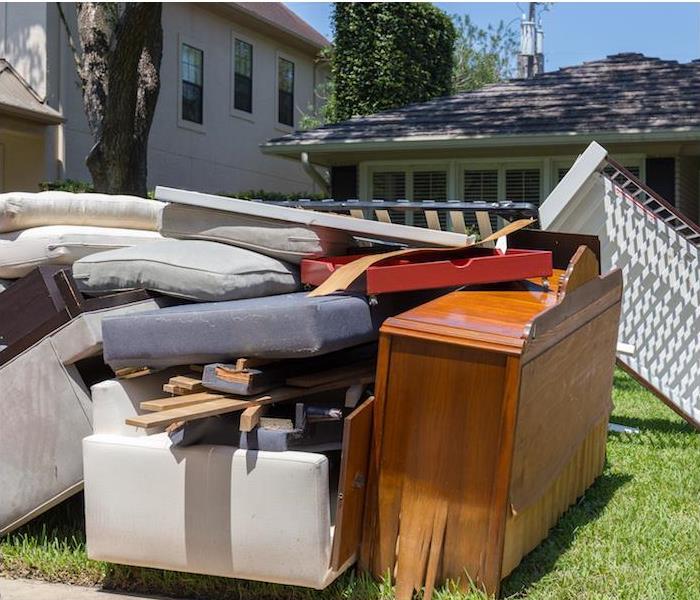 If you’re experiencing any water damage from flooding, SERVPRO of Citrus Heights/Roseville is available 24/7 to assist you with any repairs.
If you’re experiencing any water damage from flooding, SERVPRO of Citrus Heights/Roseville is available 24/7 to assist you with any repairs.
As a homeowner, learning that your home has been impacted by a flood can spur you to act immediately to start recovering from the damages.
While it is best to act quickly in a flood’s aftermath, homeowners should never do so at the expense of their own safety. While it is common to want to clean up as quickly as possible, putting your safety in jeopardy can lead to injuries or further damages that can hinder the restoration process more than they can help.
How to Prioritize Your Safety Following a FloodAvoid further safety hazards. While you may be antsy to return home, always wait for the go-ahead from emergency officials before you head into the affected areas. There are many dangers that can arise in the aftermath of a flood, such as hazardous contamination, live electrical currents traveling through water and dangerous animals that have been carried by the flood. Avoid putting yourself in harm’s way by waiting until officials have deemed it safe.
Air out the home. As long as your area is free of rain or other risks, opening doors and windows to allow the house to air out can mitigate the damage your home sustains. The air can quickly become stale if enclosed in the home for long, so you may want to let it air out for a bit before beginning the cleanup process. Though mold growth will likely have already started, increasing airflow can prevent it from worsening with time.
Document the damages. It is a common reaction to walk in and begin cleaning up your household right away, but it is always advised to take thorough photographs before you do so. Flood coverage is generally an extra policy that homeowners must purchase, but even if you do not have coverage, there may be a possibility that you can file for some of the damages in the aftermath with evidence.
Contact your restoration and insurance companies right away. Contacting the necessary parties after you sustain damage is also a high priority for the recovery process. Getting in touch with your insurance company will help you understand if you are eligible to file a claim, and getting in touch with your restoration company will help you start recovery much more quickly. The longer flood damage is left untreated, the more extensive it can be, so it is wise to start the process quickly for best results.
If your home has been damaged in a flood, we are here for you. You can contact us 24⁄7 to receive a quick response and set the restoration process in motion.
Steps to Take When Your Bathroom Floods
4/2/2020 (Permalink)
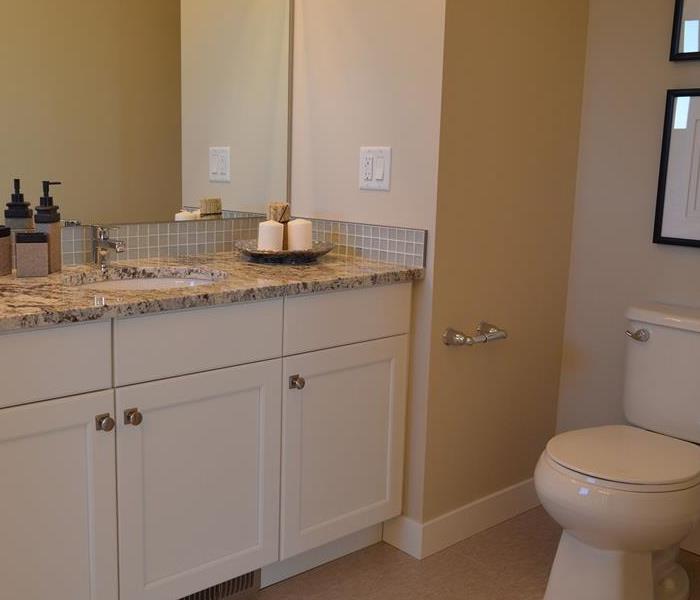 SERVPRO of Citrus Heights/Roseville and Carmichael can mitigate and restore damages from flooded bathrooms.
SERVPRO of Citrus Heights/Roseville and Carmichael can mitigate and restore damages from flooded bathrooms.
It’s always unfortunate when a bathroom floods. It’s uncomfortable, unsanitary, and all-around unpleasant. Not to mention, the damages that flooding causes are unforgiving!
The most frequent source of bathroom floods is overflowing toilets. Whenever a toilet overflows, it’s usually because of at least one of these common problems: backed up and congested drain pipes, water that’s running or leaking nonstop, or simply neglecting or not being careful with the plumbing system. Although It may seem really stressful when a bathroom floods, there’s no need to panic.
- Shut off the water supply at the closest valve possible.
This completely stops the water from running at the source. Valves can be found behind and/or below plumbing fixtures. Turning a valve off is similar to turning off a sink.
- Clean up as much water as you can.
Using a mop is often the most efficient way to clean up the excess water, so try mopping first. If there’s too much water for the mop to pick up, then gather as many towels necessary and soak up what you can. While cleaning up, do the best you can to keep the water inside of the bathroom and away from other areas of the house to minimize possible damage.
- Contact a plumber.
A plumber will figure out exactly what the cause of the overflow is, make the necessary repairs, and share insight on possible damages caused by the flooding.
- Contact your insurance company.
Explain to a representative of the current situation. Inform them of the plumber’s diagnosis and solution to the problem. File a claim with them if there are any damages.
- Contact a professional restoration company.
The restoration company will send a crew to the site and they will begin getting your bathroom back "Like it never even happened."
Protect Your Home From Heavy Rain
3/25/2020 (Permalink)
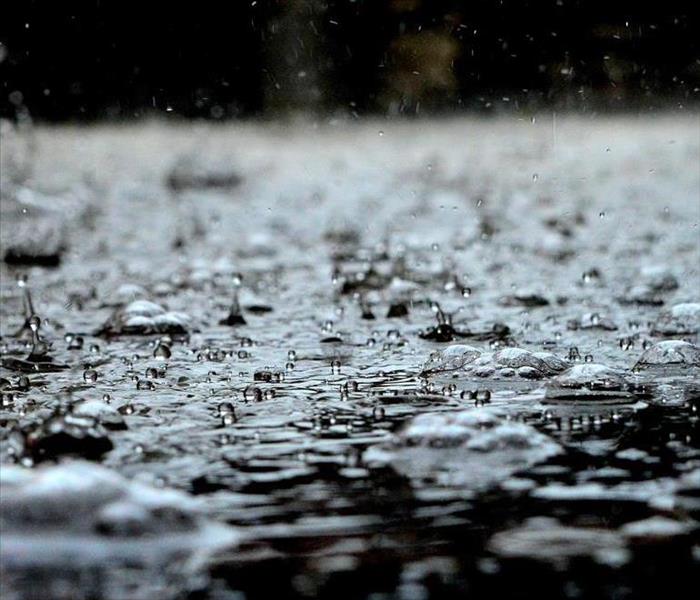 Heavy rains can cause a lot of damage at your home or workplace.
Heavy rains can cause a lot of damage at your home or workplace.
Heavy rains are capable of damaging property and the moisture left after a rainstorm can cause mold. It is important to clean up any water left behind by a storm and to dry it right away. Mold can cause health effects to your family. It is critical to make sure your home is effectively protected from heavy rains.
Protecting your Home from Heavy Rains
1. Have your roof inspected regularly. Look for signs of aging, sagging or any other damages. It’s recommended to have inspections done twice a year.
2. Clean debris from gutters and downspouts. Make sure gutters and downspouts are secured and water is properly draining away from the foundation of your home.
3. Ensure that openings like doors and windows, are sealed tightly and painted to prevent wood rot and other damage.
4. Locate low-lying areas on your property that may cause drainage issues. Contact a landscape or drainage professional to further examine the area of concern.
5. Install a sump pump to drain the water from within the structure to a proper area. Have a battery-operated sump pump for backup in case of a power outage.
6. Install a backwater valve to prevent city sewage from backing up into the plumbing system of your basement.
7. Hire a professional to inspect your chimney for cracks and other damage that may allow water to seep in.
8. Purchase sandbags if you live in an area prone to flooding or hurricanes.
If experiencing water damage at your residence contact a professional mitigation and restoration service provider. It can be overwhelming to handle a water damage claim, leave the cleanup and drying of leftover water and moisture to the professionals. SERVPRO of Citrus Heights / Roseville and Carmichael can help. Contact our office at (916) 966-2601.
Identifying Water Contamination Types
2/27/2020 (Permalink)
 SERVPRO of Citrus Heights/Roseville and Carmichael will identify and restore water damages using water contamination types as a guide.
SERVPRO of Citrus Heights/Roseville and Carmichael will identify and restore water damages using water contamination types as a guide.
In an event, your home or business suffers from flooding it is very important to identify the water contamination types. The type of water in the vicinity affects the specific restoration process to be used.
Types of Water
Clean water is not dangerous. An example of clean water would be from a broken pipe; however, clean water can become gray water quite quickly.
Gray water may be a cause for health concern. Gray water could have been clean water (from a busted pipe) and sat for more than 48 hours. If clean water sits more than 48 hours, it becomes gray water because it has been exposed.
Black water is a health risk. Black water does not mean the water is the color black, it is a classification of the type of water only. Black water could be floodwater or sewage water. Sewage water is susceptible to bacteria, mold, fungi, and even viruses.
If your home or building possesses water damage contact SERVPRO of Citrus Heights/Roseville and Carmichael right away. Do not let water sit, this can be costly and dangerous for residence or employees. Call 916-966-2601 and we will assess the water damage and restore your home or business “Like it never even happened.”
Water Damage from Plumbing and Appliances
2/12/2020 (Permalink)
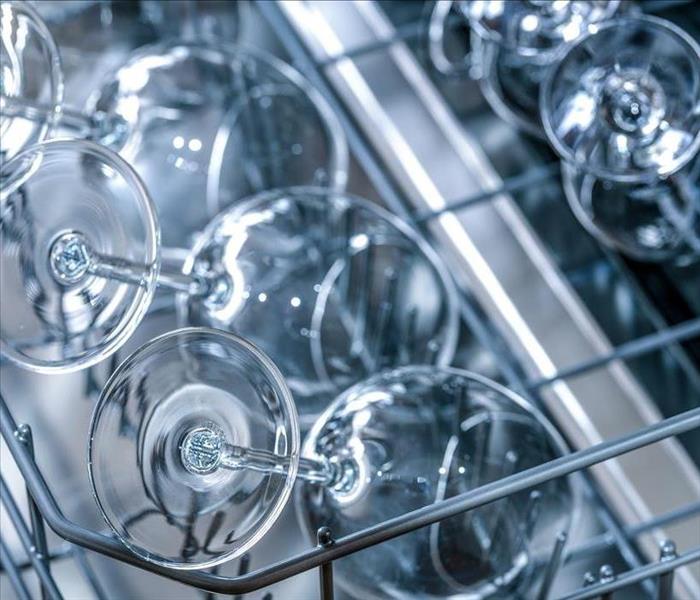 Plumbing issues and household appliances are often the cause of home water damage problems.
Plumbing issues and household appliances are often the cause of home water damage problems.
Plumbing issues and household appliances are often the cause of home water damage problems. At times the issue will not be obvious, a tell-all for water issues in the home can be a water bill increase. If you notice your water bill has increased dramatically or perhaps the obvious signs like constant running or leaky toilets, faucets that drip while being turned off properly, a dishwasher or washing machines that may pose water puddles near - it is time to make some adjustments to our plumbing or appliances.
How to Prevent Water Damage from Plumbing and Appliances
Toilets
- Check for a constantly running toilet or a leaky toilet.
- Two times a year, check the toilet for any issues such as the fill, supply, flush valves, and supply line.
- Ensure you could turn off the water supply if you needed to. Understand how and make sure that the valves are not too hard to turn.
Water Heaters
- Flush water heaters twice a year to remove any sediments. If you do not know how to do this, hire someone to do it for you.
- Inspect the anode rod every two years to determine if in good shape or if in need of repair.
- Annual inspections are advisable by a plumbing professional.
Washing Machines
- Check hot and cold supply lines monthly.
- Look for blisters in hoses, worn tubing, stress cracks, or any loose connections.
- Replace the supply hose if it shows signs of wear and tear.
- If there are any loose connections, tighten them. The most common issue with loose connections would be where the hose bends.
- Replace supply hoses at least every five years, even if there is no damage to the hose.
Plumbing Problems
- This is where the high-water bill comes in at. If there isn’t an obvious sign of plumbing issues but you are presented a larger than normal water bill, it could very well be the plumbing. Contact a plumber if your bill has increased and there is not a logical reason for this to happen.
- You may hear banging pipe noises, spot rust stains, moisture spots, or wet soil erosion near the foundation of the home. If you do, these can be signs of plumbing issues as well. This is a great time to contact a plumber.
- Keep grease out of drains, this can cause plumbing issues down the road.
- Ensure you plant trees or do outdoor work away from any drain lines to ensure you do not damage pipes. Keep in mind when planting where drain lines are located so that when they grow the roots do not cause plumbing issues later in time.
How to Detect a Roof Leak
2/8/2020 (Permalink)
 Steps to know if you have a roof leak
Steps to know if you have a roof leak
Locating a roof leak can be very difficult. Fixing the leak sometimes is easier than finding the leak. Water stains on the ceiling or mold growth may present itself and is a sign of a roof leak, but sometimes it more difficult to find where the leak is located. Once water seeps through the roof, the water is shifted by things like insulation. You may see a water spot and think you have found the location while being incorrect in detecting the destination of the roof damage.
Locating a roof leak start point is best left to the professionals. These are some steps yourself or someone hired should take to find the source of a roof leak.
- With Flashlight in hand, head to the attic to look at the interior portion of your roof. Be very careful if you are doing this step yourself. You can easily put a foot through the ceiling below. Examine the underside of the roof. You are looking for dark areas. Look for mold as well.
- When inspecting the underside of your roof, look for objects that may have become embedded into the roof. Look for an errant nail that may have pierced the roof or larger objects like tree branches, etc. Check roof vents. Seals around vents can weaken and allow water to seep through.
- Check the insulation in the attic. If you spot damaged insulation, follow the damage back to the source and find the roof leak this way. If you spot an area that is more damaged than another area, start there. Keep aware that the damage can be several feet to either side of the damaged insulation because the insulation can divert rainwater itself.
Have a professional remove all insulation around the spot to find the water’s entry point. Protective gear is needed when removing insulation, do not do this yourself.
- In dry weather, you may have to spray the roof to find the leak. Take a garden hose and spray the roof. One person will need to be on top of the roof to spray and one person will need to be inside the attic with a flashlight in hand to look for the leak. This is not safe for an average person. Leave this to a professional as well.
Once you locate the leak ensure that you start on roof repair as soon as possible. Leaks only get worse.
Avoiding Residential Water Damage
1/30/2020 (Permalink)
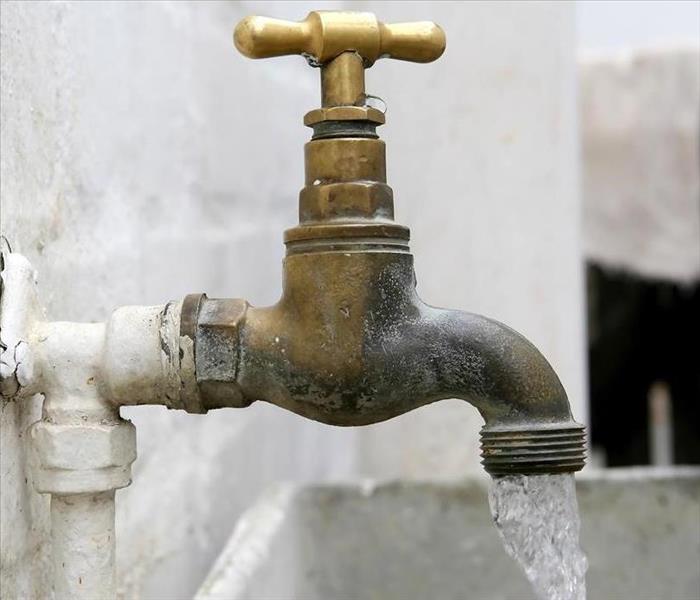 Disconnect any hoses from outdoor faucets
Disconnect any hoses from outdoor faucets
Pipes often burst in the winter and we are still well within winter. Leaks and pipe burst can be caused by many reasons other than weather-related so it is important to know causes for preventive measures. Pipes may burst due to poor installation or from aging. Stop a leak before it arises by following preventive measures.
Outdoor Preventive Measures
- Clean out gutters
- Check rooftops to see if it can handle heavy rains and hailstorms
- Remove any tree branches that may hang over your rooftop
- Disconnect any hoses from outdoor faucets and shut off any inside valves that supply water to outdoor faucets.
- Caulk cracks, holes, and any openings in outside walls and near foundation or water pipes
- Wrap any exposed pipes with insulating materials like foam rubber or fiberglass sleeves.
- Weather-strip windows and doors
Indoor Preventive Measures
- Monitor water bills in case there is undetected water damage
- Check appliances for damage or leaks
- Upgrade washing machine hoses, check for old or leaky hoses
- Insulate walls and attics
- Keep fireplace flues closed when not in use
- Keep home temperatures at 55 degrees or warmer
- Ensure heater vents are not blocked
If a pipe bursts in your home shut off the water supply immediately. Once the water supply is shut off contact your insurance company and then contact SERVPRO Citrus Heights / Roseville and Carmichael at 916-966-2601
Preventive Sewage Backup Tips
1/22/2020 (Permalink)
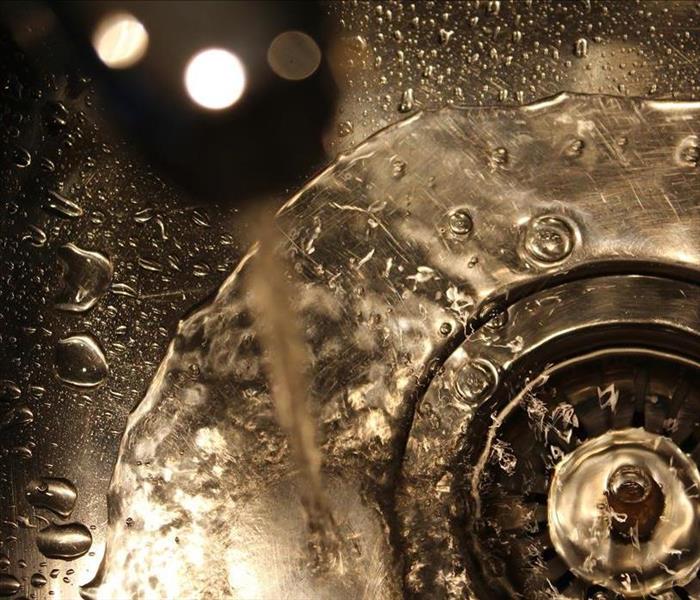 Do not pour cooking grease down drains.
Do not pour cooking grease down drains.
Sewage backups can cause damage to floors, walls, furniture, appliances, electrical systems, and more. Flooding from sewage is costly and inconvenient. Even with insurance covering a sewage backup, this is an incident one wants to avoid. Sewage smells bad and leaves an awful mess. Exposure to contaminants of sewage can expose your household to harmful bacteria and diseases.
Preventive Measures for Sewage Backups
- Toilets – Do not flush the following down toilets:
- Feminine products
- Paper towels
- Diapers
- Cloth rags
- Household chemicals
- Disposals – Do not pour cooking grease down drains. Fats and oils cannot break down easily in the wastewater treatment process and can solidify in colder weather.
- Drain Traps – Add drain baskets or strainers to catch materials that don’t easily breakdown in pipes.
- Clean Drains – Keep drains clear of clogs. Flush drains monthly with one cup of baking soda followed by one cup of white vinegar and warm water.
- Basements - Check for cracks in the basement and ensure your basement is sealed well.
Listed were just a handful of tips you can use to prevent sewage backups in your home. If you do have a sewage backup, it is recommended you do not try to clean it up on your own. Your health is number one, leave sewage cleanup to the professionals. Contact SERVPRO of Citrus Heights / Roseville and Carmichael right away at 916-966-2601
Appliances That Can Lead to Water Damage | SERVPRO® of Citrus Heights/Roseville
1/8/2020 (Permalink)
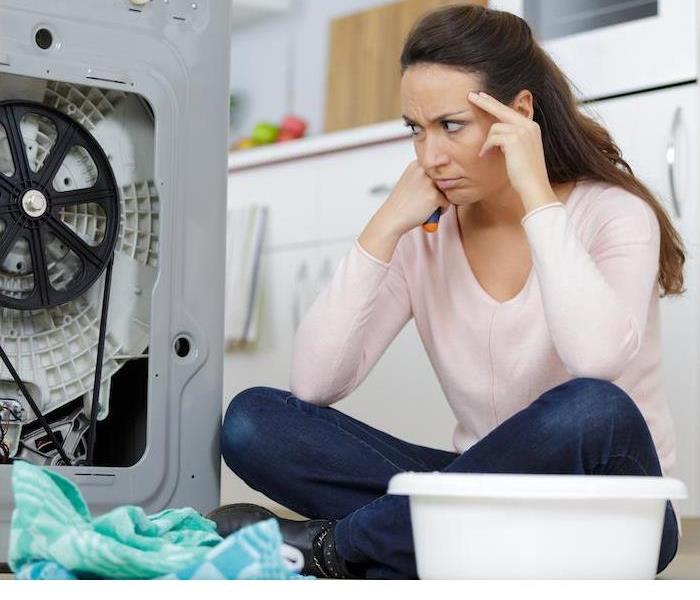 If your home experiences any flooding or other water issue, SERVPRO of Citrus Heights/Roseville is here to dry, clean and repair any damage.
If your home experiences any flooding or other water issue, SERVPRO of Citrus Heights/Roseville is here to dry, clean and repair any damage.
Water damage typically comes to mind as an external factor, brought on by weather or natural disasters. However, water damage can come from inside the home as well, often as a result of malfunctioning appliances.
Luckily, homeowners can combat this by knowing what appliances to regularly check for issues so they can prevent any small leaks from becoming bigger problems.
Appliances That Are Common Water Damage Culprits
Hot Water Heater
Hot water heaters are recommended to be replaced every 10 to 15 years, but premature leaks are extremely common. Hot water heaters are one of the leading causes of water damage in the home, and it is important to inspect them for leaks, cracks, and other wear regularly to prevent any leaks from going unnoticed.
Refrigerator
Refrigerators with ice makers are connected to the home’s water line via tubing that is generally malleable and thus prone to wear and tear. The seals can wear down over time or the tubing can develop small tears, which can lead to slight leakage. However, this combined with the fact that refrigerators are rarely moved can lead to larger damage if regular checks are not made.
Dishwasher
Dishwashers are another item that is generally “tucked away” in a cabinet and not often moved, but homeowners should regularly pull them away from the wall to check for water damage. Dishwashers do not have a long lifespan and are thus not always covered by homeowner's insurance if they cause water damage.
Washing Machine
While washing machine hoses will typically not wear down visibly, they can still develop leaks with time that can cause problems. This is so common that it is advised to check hoses each month for any hidden leaks and replace them every five years even without signs of wear.
Air Conditioner
It is common for an air conditioning unit to build up condensation as it operates, which is normally drained away quickly. However, any issues with this draining mechanism can cause much larger issues if your unit is inside the home. Following your manufacturer’s instructions as far as inspection and maintenance is the best thing you can do to prevent this, in addition to doing your own visual checks in between official inspection calls.
If your home has been impacted by water damage or you’d like to put a plan in place in case it happens to you, contact us to learn how we can help.
Do Not Neglect Leaks That May Seem Minor
2/28/2019 (Permalink)
Never neglect repairs in your home no matter how small they may seem. That tiny leak can cause major mold damage to you Roseville home. Small leaks can seem like a trickle but that trickle slowly but surely will eat away at your property.
At SERVPRO of Citrus Heights/Roseville we have five principles of mold remediation. The first one is safety and health. Mold is can be dangerous, so top priority is making sure people are safe and that it is properly contained.
The next principle is documentation. Our experts must document before, during, and after to show the process of your mold remediation.
Up next is controlling the contaminants. We must control mold at its source.
The fourth principle is remove the contamination. Our experts we remove from the structure. The nonporous materials are cleaned and the porous materials that are extensively contaminated are removed.
The last principle is correct the moisture problem. Identifying and correcting the moisture problem is necessary to ensure mold does not reoccur.
The moisture causes mold in your home that is dangerous to you and your family. Our experts at SERVPRO of Citrus Heights/Roseville can remediate your mold problems.
Sewage Backup Can Affect a Whole Building
2/28/2019 (Permalink)
The risk of a sewage backup can be bad for your property and dangerous. The water that comes from a sewage back up is unsanitary and may contain bacteria and viruses that could cause serious illness. Sewer backups are usually caused by clogs, tree roots, or collapsed sewer lines.
Clogs are one of the top causes of sewer backup. People used toilets as waste baskets. diapers, facial tissues, and napkins should not be flushed down the toilet. Be sure never to pour grease down y our drain. Although grease and fat are liquids, they can harden and cause a clog.
Tree roots are another cause of sewer backups. Roots can be very strong crushing sewer lines. They can even grow into pipes.
Another common cause of sewer back up are collapsed sewer lines. Older homes were built with cast iron and clay piping. This can break down over time and create sewer problems.
Do not reach for a cheap and easy fix such as chemical treatments. They can be harsh on your plumbing and they are harmful to the environment.
Our experts at SERVPRO of Citrus Heights/Roseville have the proper training and expertise to make sure your plumbing allows water to smoothly run through your pipes and not all over you home.
Contents Cleaning After Water Damage
2/26/2019 (Permalink)
SERVPRO of Citrus Heights/Roseville offers contents cleaning to ensure that your personal belongings and valuables can be restored instead of replaced. This could save you money and also preserve irreplaceable valuables.
We will give you peace of mind with our Content Claims Inventory Service (CCIS). Using digital photos and inventory system we can make sure your items are accounted for. Our experts take a room-by-room inventor of your belongings. The items are placed into three categories: salvageable, non-salvageable, and questionable. Then you can decide on items that are in question.
Our professionals are trained to try to restore as much as possible rather than replace. Once we have assessed which items are salvageable we take the best approach to restore your salvageable items. They can either be cleaned on your property or taken back to our facility.
For the best and most reliable water damage cleanup and restoration of your property call SERVPRO of Citrus Heights/Roseville.
Types of Water
2/26/2019 (Permalink)
Keep you and your family safe from the dangers of contaminated water. Below are the classifications of water to help you identify the waters that may be harmful to your family.
Clean Water:
This is water that does not hold a threat to you or your family. It is water that can come from a broken pipe and that can be considered clean. This water however, can quickly turn into the next category, grey water within 48 hours if it becomes contaminated.
Grey Water:
This water is category two and may pose possible health risks to your family. Grey water could be water from anywhere but that has been sitting for more than 48 hours. Examples of this water would be aquariums, waterbeds, and clogged sinks.
Black Water:
Black water is a definitive health risk. This water includes floodwater and sewage water. Sewage is a breeding ground for bacteria, mold, fungi, and even viruses. These viruses can have very harmful effects.
Keep your family and yourself safe from the dangerous of contaminated waters. Contact our team at SERVPRO of Citrus Heights/Roseville for the most safe and effective water removal. (916)966-2601
Different Types of Water
2/25/2019 (Permalink)
Keep you and your family safe from the dangers of contaminated water. Below are the classifications of water to help you identify the waters that may be harmful to your family.
Clean Water:
This is water that does not hold a threat to you or your family. It is water that can come from a broken pipe and that can be considered clean. This water however, can quickly turn into the next category, grey water within 48 hours if it becomes contaminated.
Grey Water:
This water is category two and may pose possible health risks to your family. Grey water could be water from anywhere but that has been sitting for more than 48 hours. Examples of this water would be aquariums, waterbeds, and clogged sinks.
Black Water:
Black water is a definitive health risk. This water includes floodwater and sewage water. Sewage is a breeding ground for bacteria, mold, fungi, and even viruses. These viruses can have very harmful effects.
Keep your family and yourself safe from the dangerous of contaminated waters. Contact our team at SERVPRO of Citrus Heights/Roseville for the most safe and effective water removal. (916)966-2601
Water Damage Signs You Should Never Ignore
2/21/2019 (Permalink)
Do not ignore the water stains seeping through your walls or that sagging ceiling. It can be hidden signs of the extensive damage to your home.
Not removing wet or damp items can lead to mold in as little as 24 hours. Mold can cause respiratory illnesses in you and your family. Items that have become wet must be properly treated or replaced. Our experts at SERVPRO of Citrus Heights/Roseville are specialized in mitigating damages and doing the least amount of replacements as possible. With that in mind, it is best to assess the possible water damage as soon as possible.
Ignoring the signs can result in losing strength in the foundation of your home. An easy fix can turn to thousands of dollars in repairs and replacements. The water sign can also be a ticking clock to an eminent disaster that can damage your home and valuables within.
Unpleasant odors are also a sign of water damage that can be lurking in your home. Water can foster bacterial growth that results in a musty smell.
Peeling paint is a sign that water has seeped inside wall spaces. Drywall also saturates causing paint to lose adhesion.
If you have noticed signs of water damage, make sure to call SERVPRO of Citrus Heights/Roseville.
How to Prevent Frozen Pipes
4/17/2018 (Permalink)
Sacramento has seen cold. Some areas have even seen hard freeze warnings in effect. This can cause pipes to freeze. Not only are they a problem because they prevent the flow of water, but they can also burst. You can however take a few steps to help prevent them from freezing.
- Keep the heat on. Try to keep the temperature above 50 degrees Fahrenheit even when you are not at home.
- Seal up cracks and holes both on exterior and interior walls. This helps keep the cold air out and the warm air in.
- Apply heating tape. Be sure to use the product’s instructions because it can also be dangerous.
- Add extra insulation. Make sure pipes that are locate in basements and attics gave proper insulation.
- Keep interior doors open. Pipes are usually in cabinets. By keeping cabinet doors open, the heat from the rest of the house can keep pipes warm as well.
When the temperature starts dropping low be sure to keep an eye on your pipes.
What to Do Until Help Arrives - Water Damage Emergency
3/19/2018 (Permalink)
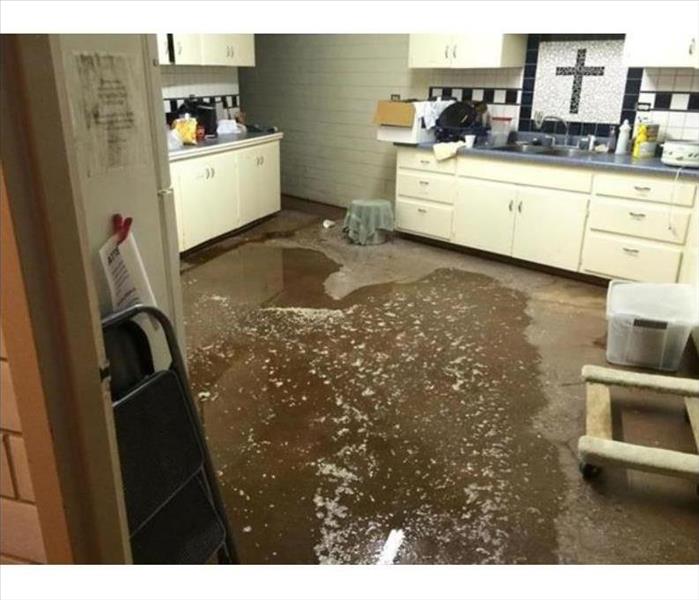 14,000 people in the U.S. experience a water damage emergency at work or at home each day.
14,000 people in the U.S. experience a water damage emergency at work or at home each day.
During a water loss it is important to take some steps that may help minimize the amount of damage to your property. The first thing to determine whether the water damage is from clean water. Clean water meaning it holds no threat to you and your health.
In the case of water damage caused by clean water, the first thing you should do is shut off the source of water if possible or contact a professional if you are not sure how to do so. If it is safe to access the power distribution panel is safe from electrical shock, turn off the circuit breakers.
Remove as much excess water as possible by means of mopping and blotting. If the affected areas have electrical outlets, switches, circuit breakers to electrical equipment are exposed to water do not enter. Always avoid electrical shock hazards.
The next thing to do is keep your possessions and valuables top of mind. Wipe excess water from your wood furniture. Raise them on blocks to avoid direct contact with wet flooring or carpet. Do not leave your books, newspaper, magazines on wet floors that may cause staining. Your important items such as computers, documents, and other valuables should be moved to a dry area. Do not use appliances while standing on wet carpet or floors. Hang furs and leather good to dry separately at room temperature.
If the water loss happens to be caused by contaminated water the steps you should take are completely different. Avoid all contact with sewage and contaminated water. Try to avoid walking through the affected areas because it may lead to spreading the contaminated water. Do not turn on the HVAC system because there is a possibility of spreading contaminated air. Do not use household fans to dry structures because this too may spread contaminants. Always makes sure to wash your hands thoroughly to avoid further contamination.
Once you have taken the above steps, be sure to contact SERVPRO of Carmichael to find the solution to your water loss needs. Our experts will remove all the water and properly dehumidify your home. We will also make sure the water damage does not lead to mold issues if it has not already happened.
Contact SERVPRO of Citrus Heights/Roseville at (916)966-2601.
Contents Cleaning After Water Damage
2/26/2018 (Permalink)
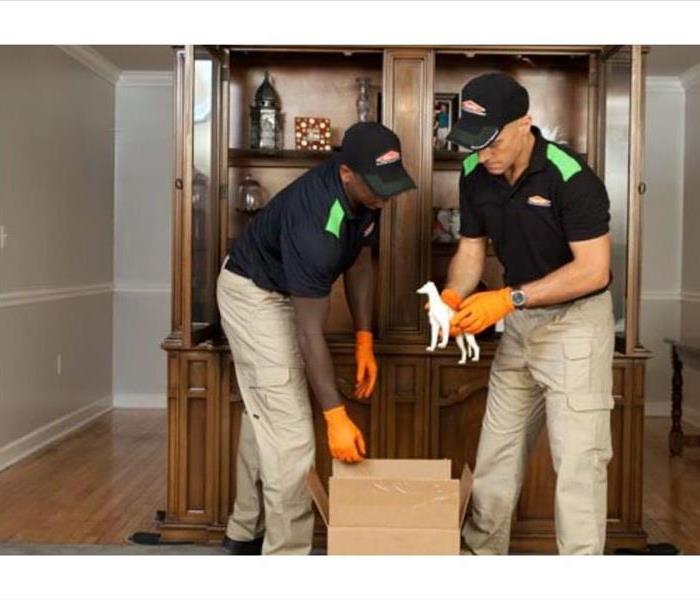 Our crew will make sure your items are all accounted for.
Our crew will make sure your items are all accounted for.
SERVPRO of Citrus Heights/Roseville offers contents cleaning to ensure that your personal belongings and valuables can be restored instead of replaced. This could save you money and also preserve irreplaceable valuables.
SERVPRO will give you peace of mind with our Content Claims Inventory Service (CCIS). Using digital photos and inventory system we can make sure your items are accounted for. Our experts take a room-by-room inventor of your belongings. The items are placed into three categories: salvageable, non-salvageable, and questionable. Then you can decide on items that are in question.
Our professionals are trained to try to restore as much as possible rather than replace. Once we have assessed which items are salvageable we take the best approach to restore your salvageable items. They can either be cleaned on your property or taken back to our SERVPRO facility.
For the best and most reliable water damage cleanup and restoration of your property call SERVPRO of Citrus Heights/Roseville.
Three Types of Water
2/22/2018 (Permalink)
Keep you and your family safe from the dangers of contaminated water. Below are the classifications of water to help you identify the waters that may be harmful to your family.
Clean Water:
This is water that does not hold a threat to you or your family. It is water that can come from a broken pipe and that can be considered clean. This water however, can quickly turn into the next category, grey water within 48 hours if it becomes contaminated.
Grey Water:
This water is category two and may pose possible health risks to your family. Grey water could be water from anywhere but that has been sitting for more than 48 hours. Examples of this water would be aquariums, waterbeds, and clogged sinks.
Black Water:
Black water is a definitive health risk. This water includes floodwater and sewage water. Sewage is a breeding ground for bacteria, mold, fungi, and even viruses. These viruses can have very harmful effects.
Keep your family and yourself safe from the dangerous of contaminated waters. Contact our team at SERVPRO of Citrus Heights/Roseville for the most safe and effective water removal. (916)966-2601
Water Damage Mitigation
4/17/2017 (Permalink)
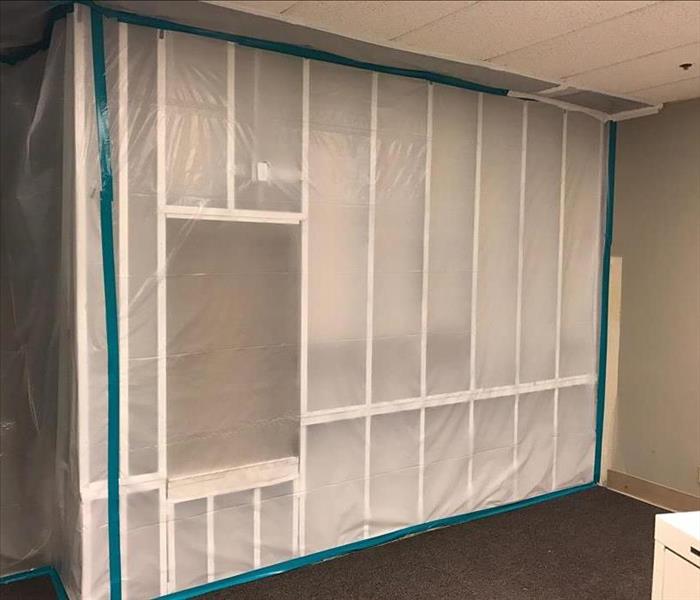 Commercial Water damage mitigation
Commercial Water damage mitigation
Water damage to merchandise is hurtful for any business, but small shop owners are often hit the hardest. The loss of some or all inventory to water damage can be devastating, and it may well be that saving your goods is a top priority in the wake of commercial water damage, be it from clean or murky water. SERVPRO has access to a number of advanced cleaning and restoration tools and techniques, and contacts to help repair many more items, so be sure to ask us how you may be able to save inventory when you call.
Fabrics
For clothing and fabrics, SERVPRO has a cache of high-performance machinery and specialty techniques to help them avoid the worst of your commercial water damage in Carmichael. In some cases, a thorough wash will be sufficient; we keep high-capacity and thorough industrial-grade washing machines available for just such a task. For more delicate work or items that can't go through the wash, however, we are also able to apply specialty cleaning solutions (such as hand-applied foam scrubs) and contract out work to local dry cleaners. Depending on the situation and type of water damage, fabrics may also need very little or no cleaning at all.
Electronics
If your store sells electronics, it can be difficult to come to terms with the loss of these items. Electronics are, of course, valuable and highly vulnerable to water damage. However, a total loss may be avoided, and we often employ contractors to help restore and refurbish water damaged electronics. In most cases, these devices are then sold off individually (often online, on platforms such as eBay and Amazon) or sold to a bulk buyer who does this on a regular basis.
SERVPRO of Citrus Heights / Roseville is committed to helping business owners save money in any way possible after a disaster. For fast and affordable restorations, call us at (916) 966-2601.
Preventing Water Damage
4/12/2017 (Permalink)
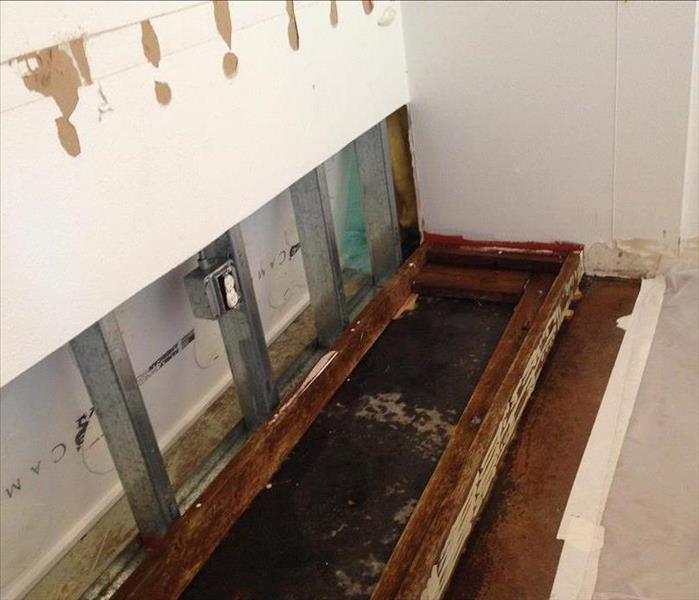 Exposed water damage before containment.
Exposed water damage before containment.
January through March of 2017 have been some of the wettest months on record. Sacramento County Board of Supervisors issued a local state of emergency effective for 30 days on Tuesday in response to the series of storms, with heavy rainfall throughout the Sacramento, Roseville and Citrus Heights Area’s.
Most homes are at least slightly at-risk for flood damage, but in many cases, multiple factors in the topography, environment, and positioning of the home can increase risks and lead to more frequent flooding. However, there are also some factors which can also significantly reduce the chance of your home being flooded, and prevent many calamities from happening in the first place. Here are some considerations to make when trying to determine how likely it is your home will be flooded in the future.
Storm Drains
Most streets in Citrus Heights and Orangevale have curbs with storm drains that help to keep any water on the roadways out of people's private property, these may become inundated and overwhelmed during a flooding scenario. If your home is near near a storm drain make an effort to monitor the flow and check the drain for debris that could plug the flow of water.
Location
One of the most important factors in determining how much risk of flood damage your Citrus Heights or Roseville home is in is often the topography of the home and surrounding areas. At its simplest, a high elevation relative to surrounding areas for your home will reduce the risk of flooding, but lower elevations will increase risk. However, other factors can also cause problems, such as positioning between two large hills or wide, open flat areas. Your home is generally at its safest if it is high in elevation, at least relative to homes surrounding it.
Sandbags
Careful positioning of Sandbags around the perimeter of your home can greatly reduce your risk of water damage. Sandbags are provided for Citrus Heights Residents through the general services department, with information on the Citrus Heights website.
What should I do if I have water damage?
Call SERVPRO of Citrus Heights / Roseville immediately and we will respond with a plan of action to manage your residential or commercial flooding damage from start to finish. We are a full turn key solution for flooding damage cleanup and restoration with the experience, the training and the equipment to evaluate the situation and return your home to you, dry and restored.
Call today! (916) 966-2601
Look Out For Water Damage In Your Citrus Heights Home
3/23/2017 (Permalink)
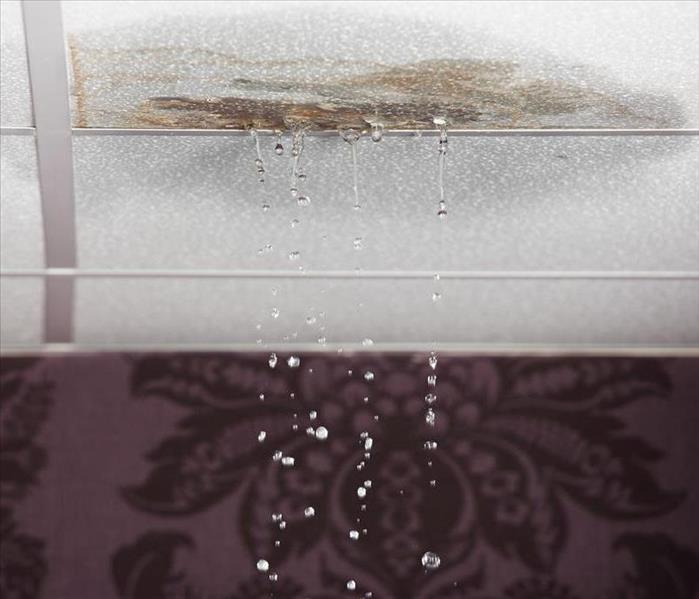 The first thing to do when you notice water damage is put in a call to SERVPRO.
The first thing to do when you notice water damage is put in a call to SERVPRO.
Watch For These Signs of Water Damage in Your Citrus Heights House
Water damage is sometimes obvious. The damage is easy to see after a flood, a burst pipe, or an overflowing toilet or sink. Water damage also happens in less noticeable ways. This is caused by an undetected leak or seepage. Some key causes of water damage are a damaged pipe, a leaking washing machine or dishwasher, seepage from your garden, and a leak in your roof or guttering. SERVPRO IICRC-certified technicians are trained to deal with water damage from any source and restore your home.
Water damage in your Citrus Heights home is unpleasant and causes harm to your belongings and the structure of your home. Look out for these common signs of water damage:
Water Pooling
Always look for the cause of any pool of water, no matter how small. A pool of water means something in your home has leaked, or water has got in from the outside.
Mold
Water damage causes mold. Look out for telltale signs of mold in your home or on your belongings.
Stains On Ceilings Or Walls
Water damage often leaves behind a discolored stain. Be aware of any new stains on your walls or ceiling.
Unpleasant Smells
Unseen water often stagnates and causes an unpleasant smell. A musty or moldy smell is an indicator of potential water damage.
Sagging Walls or Ceilings
The build up of water over time saturates wall and ceiling materials and eventually causes them to sag. Walls or ceilings that have suffered enough water damage to buckle are unsafe, and it is vital to seek professional assistance at once.
Damp Floors
Damp floors are a sure sign of water damage. Obvious signs include wet patches or stains on floors of all kinds and visibly damp areas on wood floors. Check carpets and rugs regularly for damp patches and lift them up to check underneath.
The first thing to do when you notice water damage is put in a call to SERVPRO. Our IICRC trained technicians arrive fully equipped to assess the extent of the problem and devise the most effective drying plan for your home. We have both truck-mounted, and free standing pumps to remove water. Our teams bring air movers and dehumidifiers to aid the drying process. Our aim is to dry out your home and belongings - “like it never even happened.”
Locally Owned Company with National Resources
SERVPRO of Citrus Heights / Roseville is on hand to help with water damage to your home. Call (916) 966-2601 for assistance.
Long-Term Damage from Leaks To a Crosswood Property
12/15/2016 (Permalink)
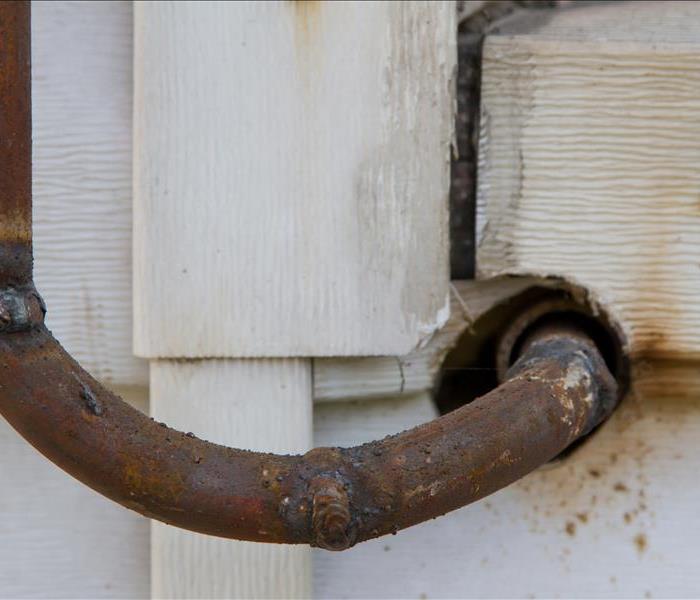 Rusty Pipes in Crosswood Can Lead to Major Water Damage
Rusty Pipes in Crosswood Can Lead to Major Water Damage
Do Not Ignore A Small Drip Until It Becomes a Large Water Damaging Development
Leaks are a seemingly benign form of water damage, as they often happen slowly and silently. If water doesn't pool up or leak somewhere it's not supposed to; leaks may go unnoticed or even be ignored after their discovery. This unwanted water or moisture can lead to a variety of problems, causing long-term and serious damage in many cases, even if water has an escape route and doesn't pool. These forms of damage are familiar sights for SERVPRO teams called in for a single leak.
Oxidation
Oxidation occurs when certain metals come in contact with water, or sometimes oxygen in the air. Rust is one of the most visible types of water damage in Crosswoods. It is very common to see oxidation. The oxidized form of iron is very visible when the iron is bare and visible in many homes, being used in appliances, furniture, structural fixtures, pipe exteriors, and many other places near water lines. Although rust is by far the most commonly seen form of oxidation by SERVPRO technicians, you should also be on the lookout for other spots of discoloration or warping on metal that line up with any leaks.
Wood Weakening
When wood is exposed to water regularly over an extended period of time, it begins to deteriorate. Damp wood is a prime growing spot for mold and other fungi, which eat away at it and in the long run can destroy the material. Some types of wood may also warp or disintegrate with regular application of water, and if these are supporting beams, the consequences may be serious for your home.
Chemical Leakage
Many leaks are found behind walls or in unseen places, which also tend to contain many sources of chemicals and water-soluble mixtures. In some cases, a leak may pick these up and carry them off, potentially harming other parts of your home and perhaps causing health hazards.
SERVPRO of Citrus Heights / Roseville is local IICRC certified specialists in damage restoration and repair. Call us at (916) 966-2601 for our help restoring your water damaged home or business.
Water Damage Can Creep Up as Moisture Seeps In
10/12/2016 (Permalink)
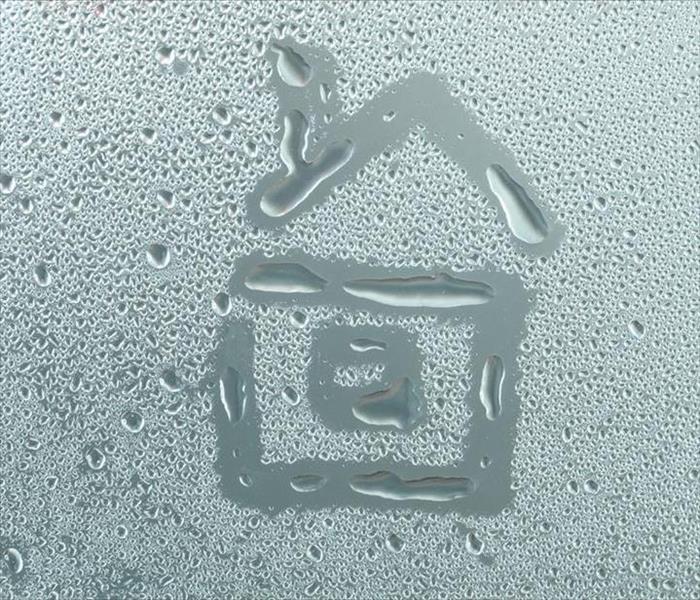 Moisture Leads to Water Damage in a Roseville Property
Moisture Leads to Water Damage in a Roseville Property
SERVPRO Suggests to Maintain a Reasonable RH to Limit Water Damage to Your Property
Water is a complicated thing. We all need it, as do animals, to live. It can take the form of three different phases: gas, liquid, or a solid, depending on the temperature. It's found all over the planet, although much of it is dirty or contaminated. It's relatively easy to clean and make potable again, however, if the correct equipment or chemicals are accessible. But water can also cause lots of damage.
Water damage in Roseville can originate from many different sources. As ice, water can damage roofs and the shingles, cause blocked gutters to crack and break, or expand water pipes in a home to the point they burst. As a liquid, water can flood an area in a home, come gushing out when a frozen pipe has burst, backup into your basement from the sewer or overflow from the toilet or washing machine. It can also cause interior walls to warp, deteriorate and peel their paint and wallpapers when a leak upstairs has allowed water to run down the interior of walls on lower floors.
As a gas in the air, in the form of humidity, water can still create problems for homeowners by offering a conducive condition for the growth of mold and to dampen building materials.
Changes in the seasons can be a time of rising humidity levels, and summer can be a time when children's swimsuits get left in places they shouldn't be, creating a moisture increase in an already warm location. Cooking soups and stews in the winter can also have the same result. Ventilation is the key to eliminating the excess moisture. A dehumidifier, especially one that creates little air movement, can help decrease humidity in a home. Ensuring that the line drains correctly is also vital.
SERVPRO personnel can assist you with this, in both the original set-up and also the maintenance, if any is required in the future. There are other ways to reduce and control moisture in your home that we would be happy to explain to you. An assessment can be of great value.
When water damage is something you're experiencing, or even just concerned about, call us. We're SERVPRO of Citrus Heights / Roseville, and you can reach us anytime, day or night, at (916) 966-2601.
 You can contact SERVPRO of Citrus Heights and Roseville / Carmichael. We are here for you for your mold mitigation needs.
You can contact SERVPRO of Citrus Heights and Roseville / Carmichael. We are here for you for your mold mitigation needs.




 24/7 Emergency Service
24/7 Emergency Service





















